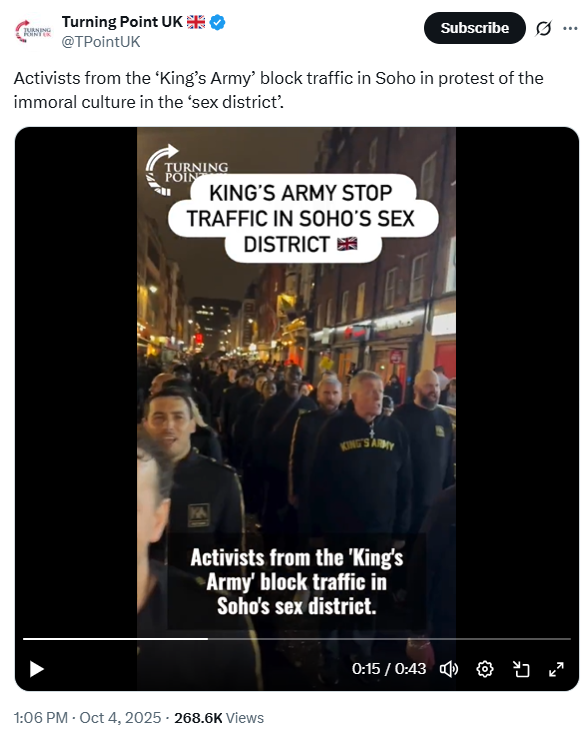From the Christian Post:
The Rev. Douglas Wilson, who serves as senior pastor at Christ Church (CREC) in Moscow, Idaho, rebuked conservative podcaster Candace Owens [1] during Turning Point USA’s AmericaFest in Phoenix, Arizona, last week, and explained the various Christian schools of thought regarding modern Israel.
Speaking during a half-hour panel with TheBlaze host Steve Deace that was moderated by Dr. James Orr, a British theologian, Wilson also condemned antisemitism among Christians, which he defined as “Jew hate” and an example of sinful “backsliding.”
Orr is a philosopher of religion at Cambridge University and a “senior adviser” to Nigel Farage, and he was in somewhat odd company for a serious academic: Wilson, a Christian nationalist and theocrat, is the author of the notorious Southern Slavery: As It Was (there had “never been a multi-racial society which has existed with such mutual intimacy and harmony in the history of the world”), while Deace is co-author of the Charlie Kirk-endorsed Rise of the Fourth Reich: Confronting Covid Fascism with a New Nuremberg Trial, a crank tome which commends various Covid conspiracists.
On the subject of Israel, Wilson and Deace are both broadly supportive, although it is notable that neither subscribe to the idea of Israel being an sign of the “End Times” – the belief is perhaps in decline, reflecting the fact that we all still here despite the State of Israel being nearly 80 years old now, and that Trump represents a promise of Christian nationalist earthly power for decades to come in contrast to inevitable “last days” religious decline.
The Christian Post also noted commentary posted online by Calvin Robinson, described somewhat loosely as a “Catholic cleric”:
Robinson suggested in an X post that the fractures within TPUSA and among conservatives generally indicate simmering generational tensions over the post-WWII consensus regarding Israel.
“Where the old hats can see Jews as especially persecuted because of WWII, Gen Z tend to see that as giving one particular group special treatment, in a world where so many are persecuted. That is before you even get into the Christian Zionist vs. Supersessionism debate on faith,” he wrote.
In the same post, Robinson described Orr as his “good friend” – two years ago they co-hosted an Easter special on GB News. The continued friendship is notable given Robinson’s own views Jews, which have been increasingly belligerent and conspiratorial: in recent posts, he has urged people to “reject the shekels“, which he apparently believes explains pro-Jewish comments on social media (2), and he has argued that the reason there are Muslims (although he pointedly uses the term “Mohammadens”) in Parliament is “because of the Rothschilds” (3). When UnHerd published an article describing Orr as “Farage’s religious Svengali”, Robinson’s interpretation was that “(((Unherd))) has chosen a side”, the far-right “triple brackets” symbolism indicating Jews.
Notes
1. Owens’s wide-ranging conspiracism is notorious, and she has not been put off by an apparent rebuke from her British father-in-law Lord Farmer, a financial backer of GB News. Most recently she was using her show to wave around a copy of a antisemitic volume called The Talmudic Jew.
2. Robinson’s post was rebuked by Julia Hartley-Brewer.
3. Robinson here extrapolates from the fact that the Jews Relief Act 1858 allowed Lionel de Rothschild to sit legally as an MP in Parliament without taking a Christian oath. However, although a member of the Rothchild family benefited from the Act, the Rothschilds were not responsible for it passing through Parliament, and the Oaths Act 1888, which allowed other non-Christians to enter Parliament, would have been passed anyway as an obviously needed democratic reform. Robinson’s framing is pure Rothschild conspiracism.
Filed under: Uncategorized | Leave a comment »






